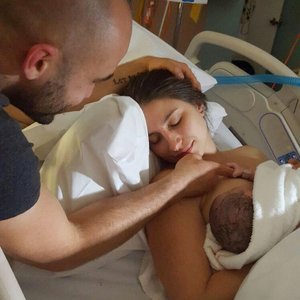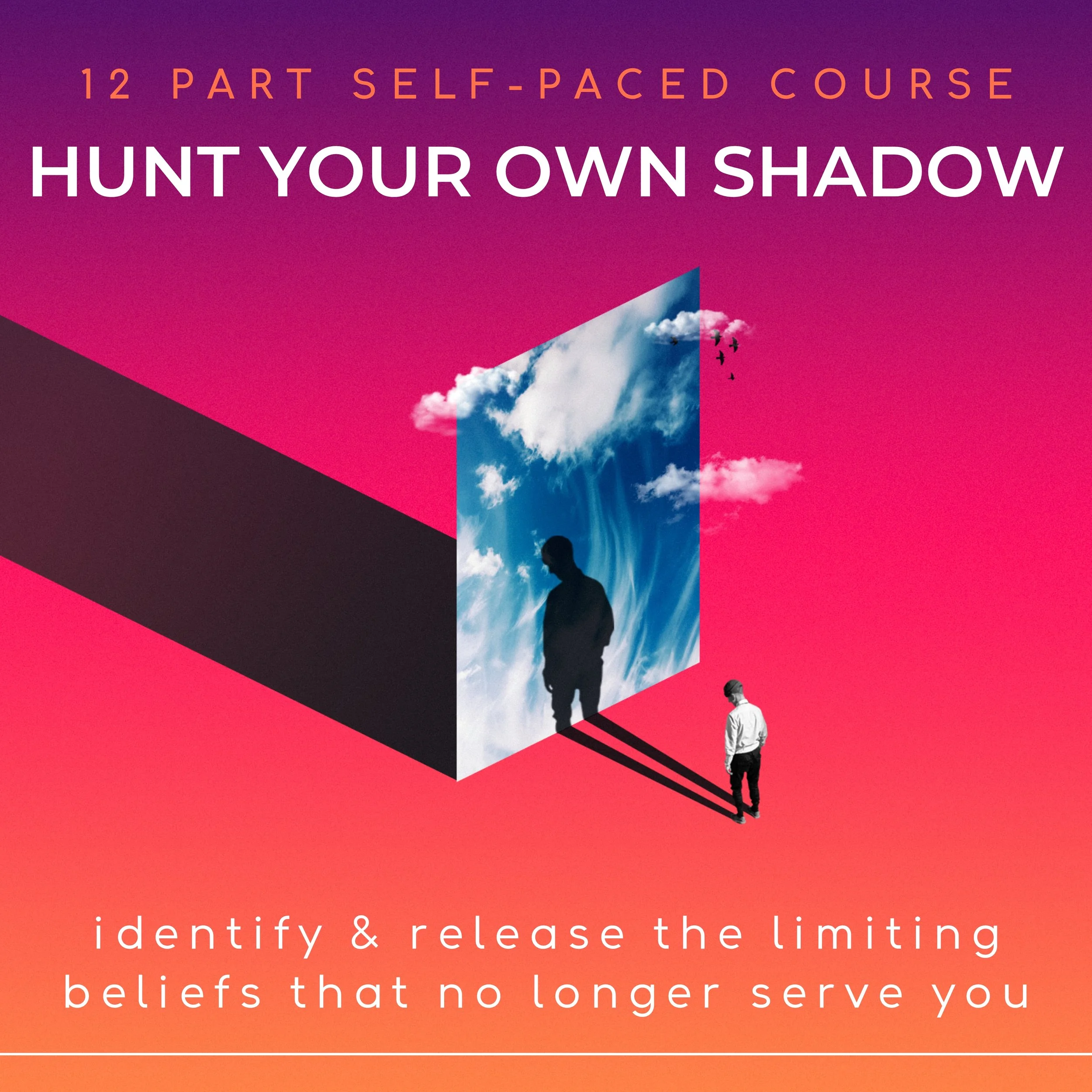Why Having a Child Isn’t as Bad as Everyone Says It’s Going to Be
In the months leading up the birth of my first child, I noticed something strange occurring. Almost everyone* that I told the news to had the same reaction.
First, they congratulated me, then they proceeded to tell me endless stories of the horrors of childbirth and fatherhood.
They would share tales of sleepless nights, never ending inconsolable crying and the mountains upon mountains of poo that regularly explodes out of nappies - "Babies are prone to regular bouts of explosive diarrhea".
On more the one occasion, I was told about how the fear of childhood abduction and bullying in the school yard literally kept them awake and night – "Trust me, when he is older the dreams will haunt you as well".
It wasn’t always so extreme, but something was almost always mentioned – "Congratulations on the amazing news, you know you are going to have to do lots of loads of washing all the time, don’t you?"
The big one, touched upon by basically all parents, was money and recreational activities. Each person had a different way of saying it, but the summation was basically that "babies will take every spare cent you have, but that won’t matter because you won’t have the time to use it anyway".
Those without children were often just as bad. Following the obligatory congratulations, they proceeded to instantly voice what I now realise amounted to their greatest concerns about having children themselves. I was repeatedly reminded of how dramatically different my life was going to be. – "Are you ready to lose all your spare time/money/sanity?"
It got so bad that I felt nervous having the conversation with anyone new, because I wasn’t sure what new thing they would inform me about. Suffice to say that my anxiety levels were through the roof in the lead up to the big day.
Having never spent much time around a baby, I had no real idea what it would involve. I didn’t know how often they ate or cried. I had no idea how to change a diaper, or what babies even wear. In short, I was clueless. The only real information prior to pregnancy that I had on babies came from movies and societal stereotypes.
So when everyone shared their horror stories with me, the movie cliches of baby raising were all confirmed. When I expressed my growing anxieties, I was unanimously told that "it won’t matter, because you will love him regardless", and that "the love you will feel for your son will be unlike anything you have felt before in your life".
At the time, I obviously didn’t have my son yet, so talk of that kind of love was still alien to me. I couldn’t imagine it (how could I?). I wasn’t sure that I would, or even if I could. I was certain that I would have lasting hang ups from my past. That my residual feelings towards my father would corrupt my feelings towards my son.
All of this combined in my mind to create a storm of anxious rumination. As the pregnancy progressed, my mental health steadily declined. I would bounce between dissociation and anxiety with a dash of regret thrown in there.
Once I realised what was happening, I made sure to protect myself mentally. I began by reading parenting books. This was great, as the new knowledge it gave me took away some of the unknown factors involved. The statistics it presented allowed me to logically contemplate the likelihood of any significant issues actually arising.
I asked close friends who had recently had their children for a real account of what it was like. This helped immensely, as they were able to provide me with a nuanced answer, as opposed to the highlight reel of horrors I was previously getting. Spending time with them and their babies was also very informative. I was able to see what a baby was actually like, as well as observe how the parents were actually feeling as it was happening.
By the final month, I was still nervous, but now I was also excited. I couldn’t wait to meet my little man and start a new chapter in our family’s life.
I have previously talked about the birth experience itself here. But the summary is that it went significantly better then we all expected. There was a long lead up in the days prior, but the main ‘pain and screaming’ part that movies depict only really lasted for 10 minutes. My wife puts this down to a combination of her regular meditation practice, Calmbirth classes, the presence of a doula (birth support person) and of course luck.
As of writing this post, my son is seven weeks old and I am loving it. I keep thinking about all the horror story comments that I was told and comparing them to what I am actually experiencing. The difference is almost comical.
True, everything that they said would happen has indeed happened. Yet has never been anywhere near as bad as they described it would be. I have had some sleepless nights, but its easily manageable and I am more than functional. My son has literally had only one case of explosive diarrhea, none of which ended up on me. I am more ‘fearful’ for his welfare, but it is not a crippling insecurity for his welfare, nor is it constantly at the forefront of my mind.
I have still been able to write, meditate and exercise almost as much as I used to. I put this down to time management as well as adapting to the given situation as it presents itself.
For example, I often go out and exercise when my wife has her friends over. This works because they will all want to see the baby, and will support her if needed (besides I am only a phone call away). When my wife needs some time to herself and the baby is sleeping, I can get some writing or other creative work completed.
In fact, having my baby on my lap has allowed me to complete things that I haven’t previously been able to prioritise, but due to the ‘restrictions’ placed on me by having a child, I am now able to do them. I am now getting through a bunch of instructional DVD’s for one of my hobbies (Brazilian Jiu Jitsu) as well as learning to speak Russian via my iPhone (Duolingo and Memrise are amazing!).
Taking Archer on his first car ride to socialise
My relationship with my wife has not changed. We still spend a bunch of time together, are just as affectionate and loving, and we still discuss things other than our child. Our social life has changed somewhat, but whilst we haven’t been to the cinemas or out clubbing, we still have fun together. Realising that our activities now have to involve our baby, we have adapted. Now we go out for coffee dates, to social gatherings, as well as regularly make a night in with a Netflix a thing.
Don’t get me wrong, being a father regularly presents new challenges and experiences. Sometimes it is not pleasant, but it is no way near as bad as what I was led to believe it would be.
Now when people ask me how I am finding it, I am honest. I won’t overstate my tiredness or my son’s pooping levels – that serves no purpose. In fact, I strive to actively downplay and counteract some of the stereotypes and misnomers that are out there.
Recently, my wife and I were invited to share our birth story to a prenatal group. After answering all their questions, I made sure to tell them what had needed to hear, mainly: "that they will be fine, and to ignore the horror stories that everyone was sharing with them". I literally heard an audible sigh of relief from more than one of the dads to be.
This whole experience has taught me that people seem to have a propensity to overstate things. Whether it be about childbirth, changing career, losing weight, asking someone out, traveling the world, writing a book, or quitting smoking, most people share the worst of their experiences. Based on people’s advice and ‘experiences’ it feels like we should never try anything new, lest we suffer immense torture.
Perhaps people share their experiences this way because it is those moments that poignantly stick out in their memories. So, when they are asked about the event, those are the first that come to mind. Or maybe it is because they want to warn you about what you are getting into so that you are not shocked by it when it occurs. Whilst this is well intentioned, I feel that it can be overwhelming to the uninitiated. Rather than helping to prepare the person, this kind of ‘support’ may just be freaking them out.
Please, if you are giving advice about parenthood (or anything really), try to be as honest as possible. Do your best to not overstate events or to dramatize the reality of the situation. Whilst it may be tempting to add some flair to your story, doing so may be also adding anxiety to the other person. They need to hear about what occurred, how many times it occurred and what you actually felt about it at the time.
When sharing your story with someone, look at their body language and empathise with their situation. Remember that they don’t know what you know and are trusting that what you say is the truth. Expecting parents are sponges that absorb everything you tell them.
Update: The ‘horror story’ never seems to end. Just today I was asked by a new acquaintance how it was going and if I was getting much sleep. I told him the truth, that it was all going great and that for the most part I am feeling well rested. His response was as expected “don’t worry, he will change” – implying that the sleepless nights will come for me soon enough.
I’m not worried, rather I am taking it as it comes and sharing with expecting parents what is actually happening.
I’ll keep you updated with how I have actually found being a parent.
*I want to thank the rare few, who provided me with real, non-dramatized advice. You know who you are!
Your shadow is the gateway to a more authentic you.
This course is your guide to profound inner work. Through powerful insights, guided prompts, and proven techniques, you'll navigate your shadow, heal unresolved wounds, and reintegrate the parts of yourself you’ve long ignored.
What’s Inside:
12 x Guided Meditation & Contemplations
12 x Introspective Prompts
12 x Expansion Challenges
A comprehensive instructional PDF guidebook
Unlimited email coaching for ongoing support and personalized guidance
Explore full course details and watch intro video here!
This isn’t just about healing, it’s about meeting your shadow head-on, embracing every part of yourself, and reclaiming your full power.
Are you ready to face what’s been hidden and step into your truth?



